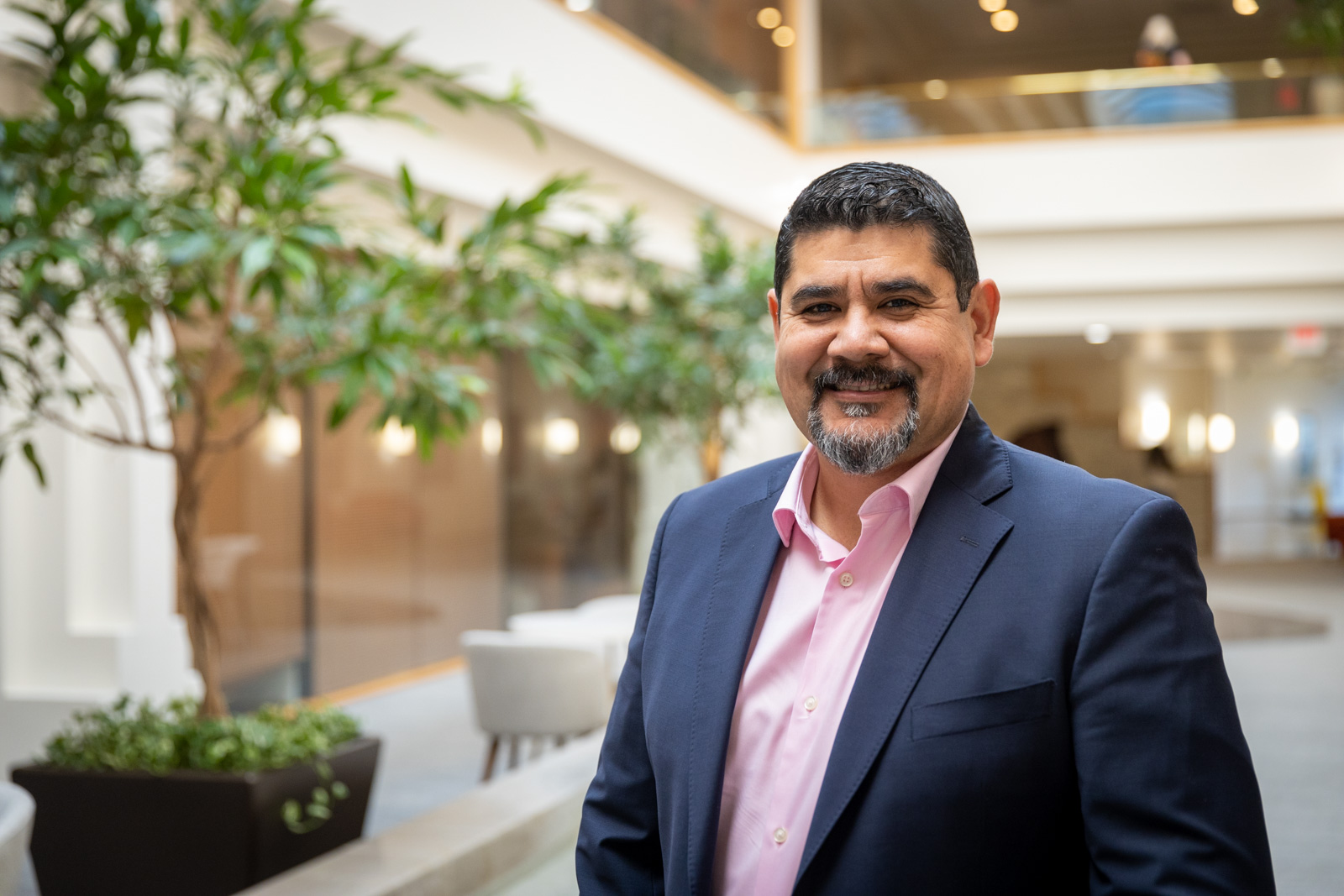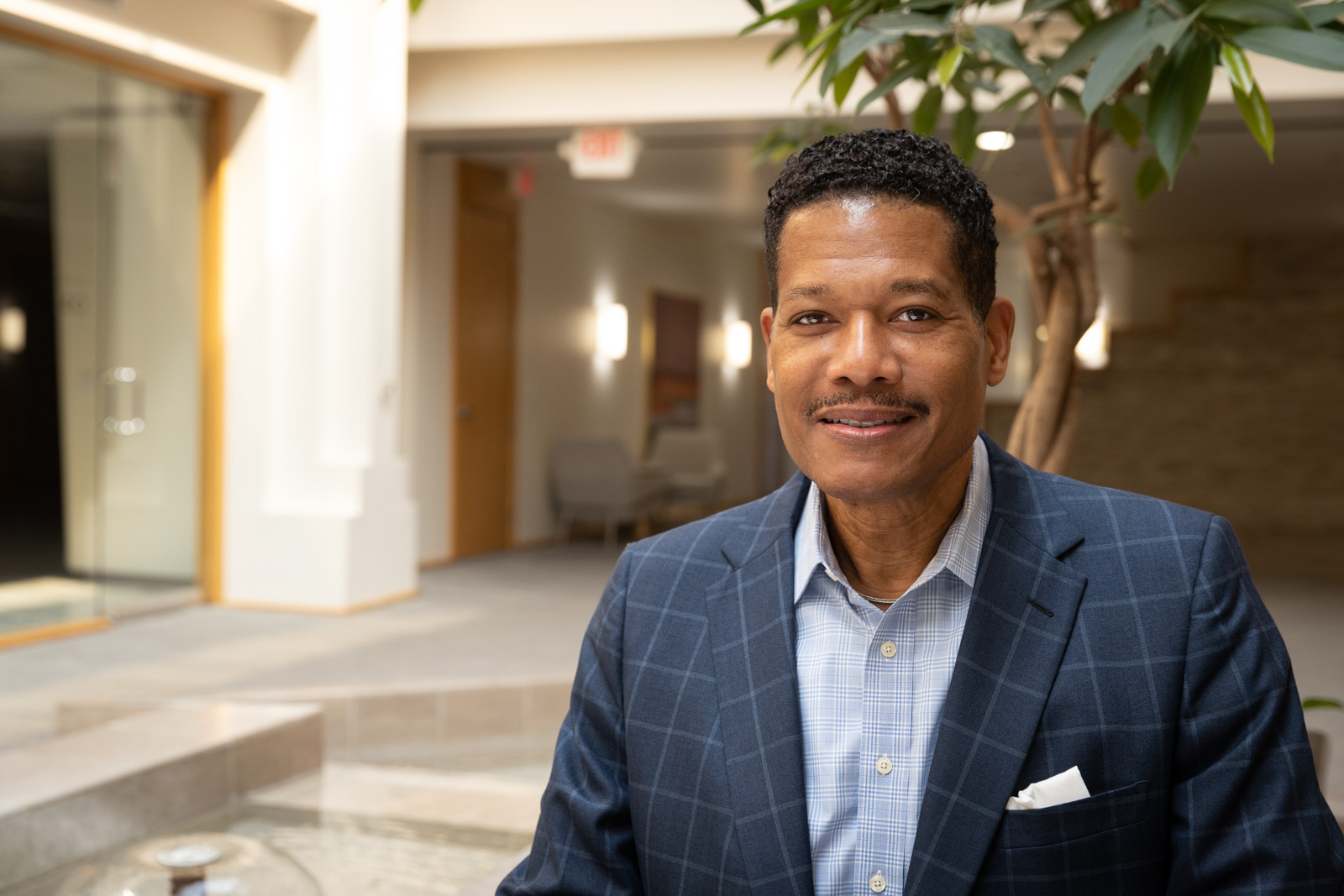2022 In Review
Community Foundation Sonoma County

A Message from Our Leadership


Richard and I are honored and delighted to introduce the Community Foundation Sonoma County’s Annual Report for 2022. We both share a deep commitment to CFSC, and, between us, bring many years of service on our board, committees, and in our community.
I am particularly honored to share this first annual report with you as the new President and CEO of CFSC.
As I reflected on our work in 2022, I was struck by the profound significance of Richard and my roles as people of color, leading an organization that is woven from the diverse fabric that is Sonoma County.
Our backgrounds and experiences enrich our perspectives, allowing us additional insight into the nuanced needs of our community. Together with our board, staff and donors, our work together highlights the importance of representation, inclusivity, and diversity in leadership roles.
In 2022, CFSC’s impact has been resounding. Our grants totaled over $17 million, reaching over 577 organizations, and directly addressing the most urgent needs of our community. More than half of our grants went towards Health & Human Services and Education initiatives, two pillars that form the foundation of a thriving society.
Our community’s vitality and diversity are showcased in our grant distribution, with over 85% of our grants directly serving Sonoma County. Within this report you’ll read about the tangible results these grants have produced, from incubating nonprofits to funding vital research, to investing in healing, helping, and housing.
Our community is a tapestry woven from donors, fund holders, nonprofits, leaders, neighbors, and dedicated team members. The vibrant threads of this tapestry mirror the rich cultural mosaic that is Sonoma County. The impact we have made together is a testament to the power of collective action and the generosity of our community.
Over the past 40 years, our collective efforts have transformed lives, uplifted communities, and addressed pressing social issues. Our work reflects the beauty and diversity of all of Sonoma County.
As we look forward, Richard and I, along with our staff and board, are brimming with excitement about the journey ahead. Our organization’s future holds the promise of even greater impact, as we remain steadfast in addressing the ever-evolving needs of our community and in advocating for a more just, fair, and equitable society, starting right here in Sonoma County.
With heartfelt gratitude and excitement for the future,

Óscar Chávez
President & CEO

Richard Davis-Lowell
CFSC Board Chair

Donor Stories: Kunde Family Legacy
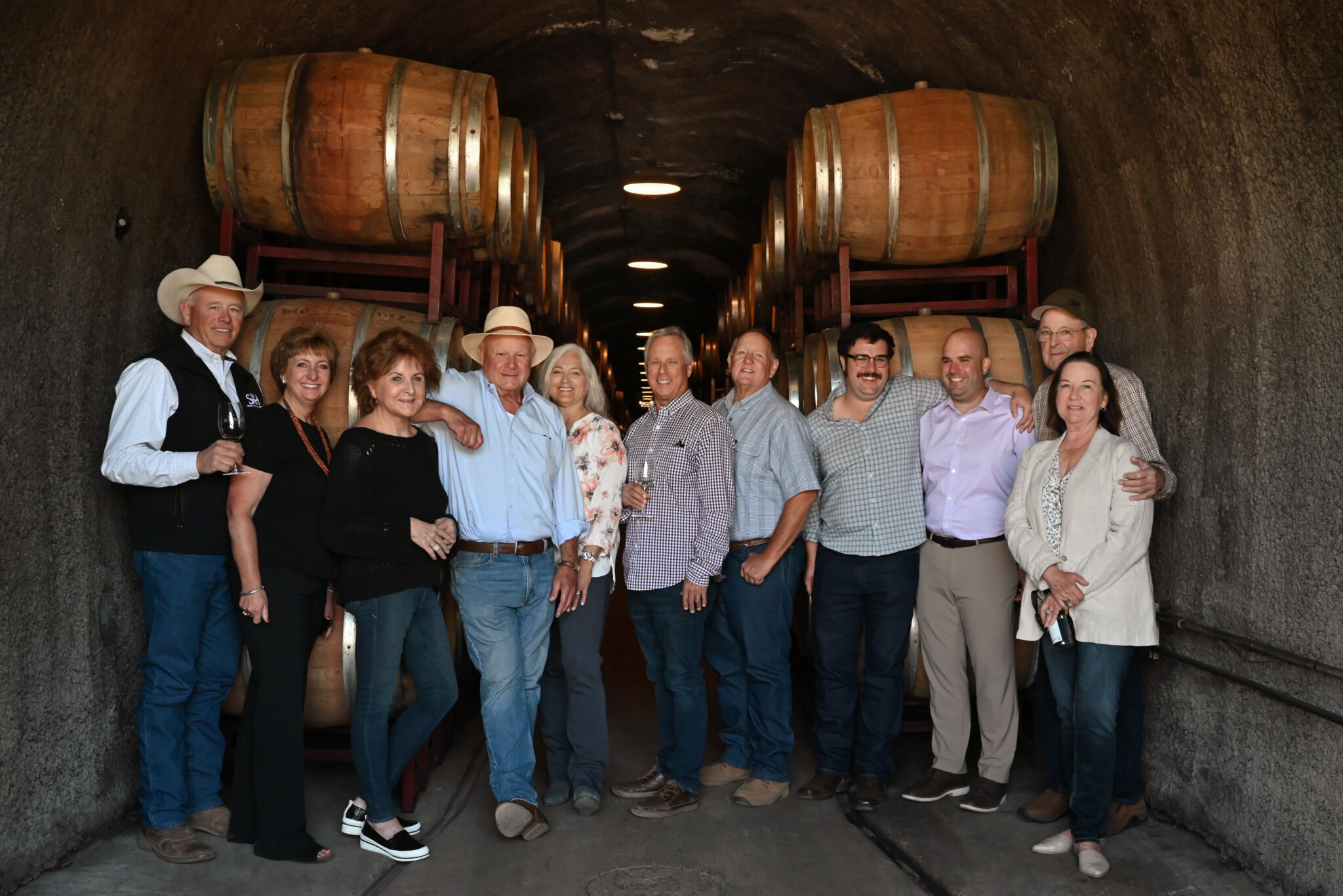

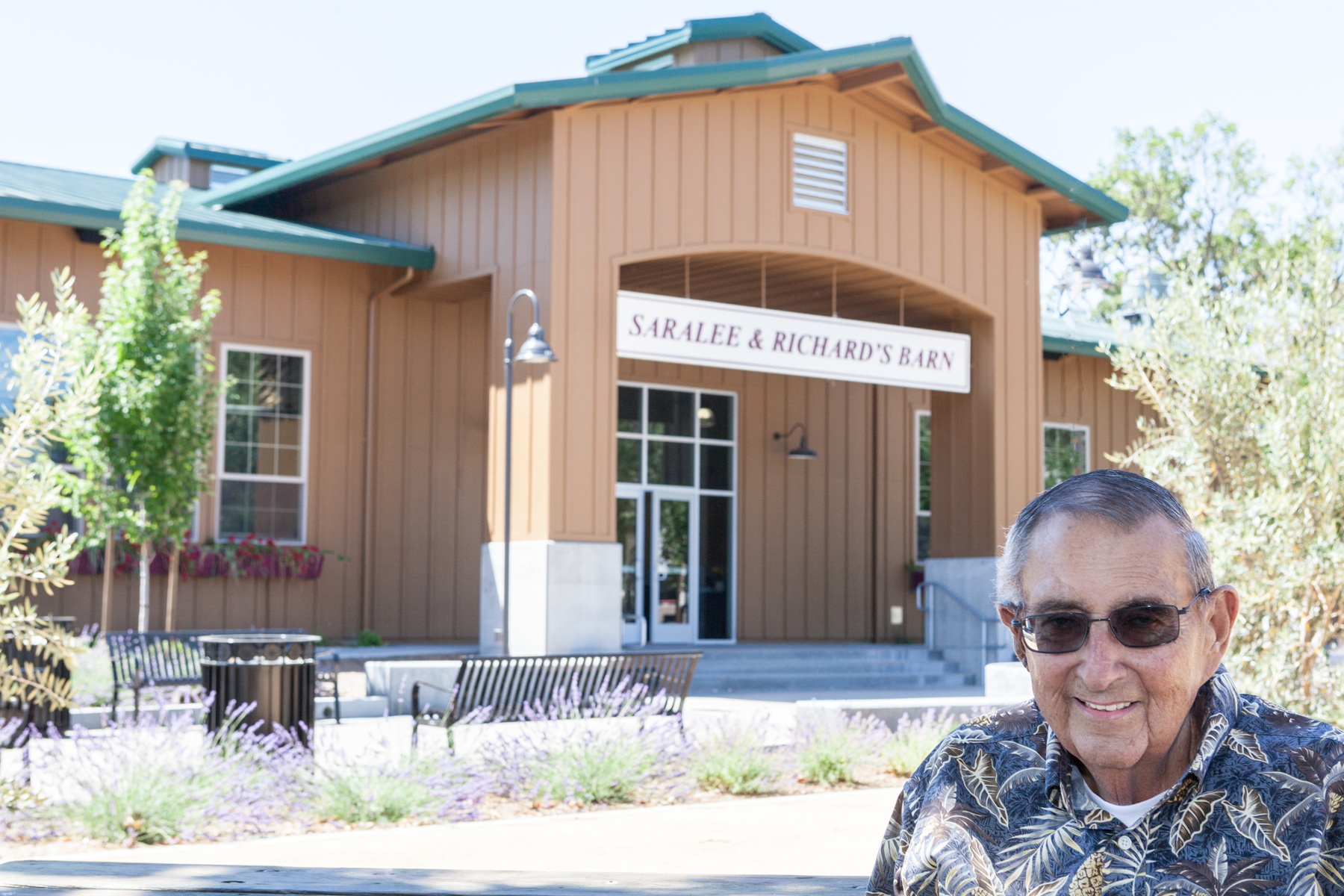
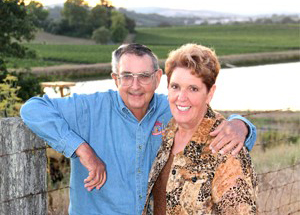
Longtime Sonoma County residents Richard and Saralee Kunde planted seeds for a legacy that will support our community for generations to come. The couple, both from North Bay farming families, made a lasting impact on Sonoma County’s agricultural heritage through their tireless work championing our local farms and farmers.
“I don’t know if there’s been anyone ever that’s had such an influence or such a desire, really, to keep agriculture and this way of life a part of Sonoma County. They both valued it so much,” says Tim Tesconi, a longtime friend of the Kundes who met Saralee in high school when she was a 4-H member and Tesconi was a member of Future Farmers of America. “They were dear friends and such an inspiration to me and everyone who came into their orbit.”
Richard became widely known for being the nation’s largest seller of grapevine rootstock and a force in the local wine world, while Saralee was known for her infectious love of Sonoma County’s agriculture, primarily through her work with the Sonoma County Fairgrounds where she served as a director of the Sonoma County Fair and the Harvest Fair. She was the driving force in establishing the 4-H Foundation, Russian River Valley Winegrowers and other agricultural groups. Both Richard and Saralee are inductees in the Sonoma County Farm Bureau Hall of Fame for their wide-reaching and substantial impact.
An unstoppable pair who promoted all things farms, fairs and agriculture—particularly for youth—Richard and Saralee raised millions of dollars over the course of at least fifty years to ensure that farmers would have a future in Sonoma County. They hosted numerous fundraising events for organizations like the 4-H Foundation, Russian River Valley Winegrowers Association, Farm Bureau and Sonoma County Fair.
“They totally believed that agriculture, farm youth and the fairs were Sonoma County’s identity, and they channeled their energy and resources to support them,” says Tesconi, a former Executive Director at the Sonoma County Farm Bureau and former longtime agriculture writer for The Press Democrat.
Today, their legacy lives on in numerous ways. One is through the 12,000 square foot ‘Saralee & Richard’s Barn’ at The Sonoma County Fairgrounds, which first opened its doors in 2016, the 80th year of the Sonoma County Fair.

Legacy Donors
We gratefully acknowledge our donors who have chosen CFSC to steward their future planned gifts. These donors have chosen to leave a lasting impact on our community through their legacy giving commitment. Their gifts create lasting change and support organizations working to solve some of Sonoma County’s most pressing concerns.



Donor Story: Co-Invest in Community
After years focusing on Marin County, the Peter E. Haas, Jr. Fund—a supporting organization with the Marin Community Foundation—expanded their service area to include Sonoma County when founders Ginnie and Peter Haas moved to Petaluma. Philanthropy has been a part of the Haas legacy in the Bay Area for over a century, and the Haas’s believe in ‘giving where you live;’ this commitment to their communities led them to a collaborative endeavor with Community Foundation Sonoma County.
“We began talking with people in Sonoma County about what we should know about what the needs were, who was doing good work,” says Ralph Lewin, Executive Director of the Peter E. Haas Junior Family Fund and current board member at Community Foundation Sonoma County. “I think we talked to thirty leaders across Sonoma County, asked them to tell us what they think we should know before investing in the wellbeing and addressing the needs in Sonoma County.”
Lewin says that most community leaders pointed them toward the 2014 Portrait of Sonoma County report, a project originally commissioned by the Sonoma County Department of Health Services, that takes a human development approach to understanding the people and needs of Sonoma County’s diverse population. The report highlights disparities in the community along race, class, gender, and geography, and approaches the disparities from a solution-oriented lens. And rather than highlighting just the issues themselves, the report is shifting the conversation toward thinking about the structural impediments—or barriers that hinder greater access to mobility and opportunity at the neighborhood level.
The report had vital insights, but it was six-years old in 2020; after years of fires, housing shortages and widening income gaps throughout the county, the needs of Sonoma County had changed. Lewin was interested in updating the report and connected with Community Foundation Sonoma County, who put him in touch with numerous organizational leaders including Community Foundation Sonoma County’s President & CEO Óscar Chávez, who was at the time the Assistant Director of the Sonoma County Human Services Department.


Give with Impact


Generation Housing:
Working Toward a More Equitable Sonoma County
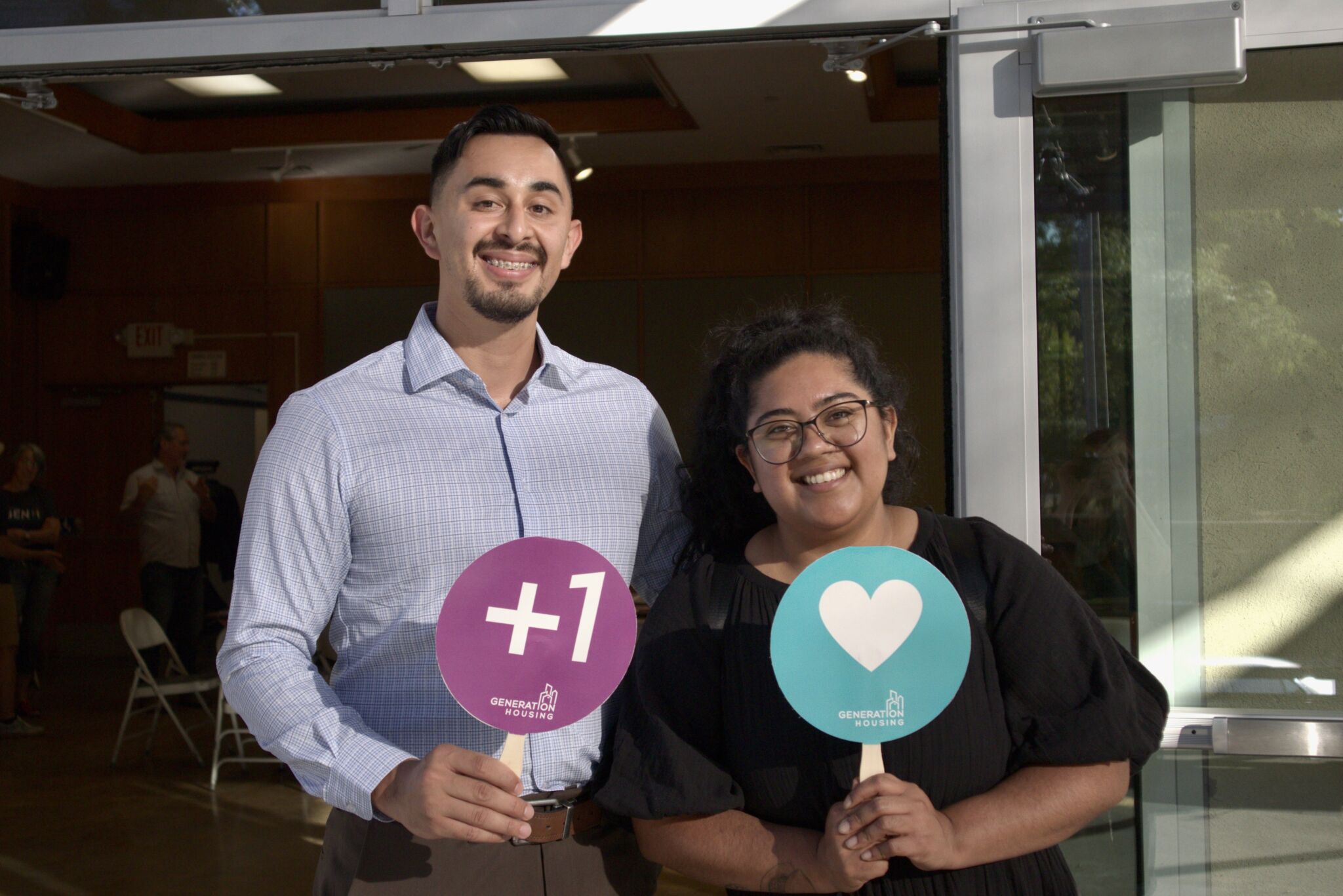
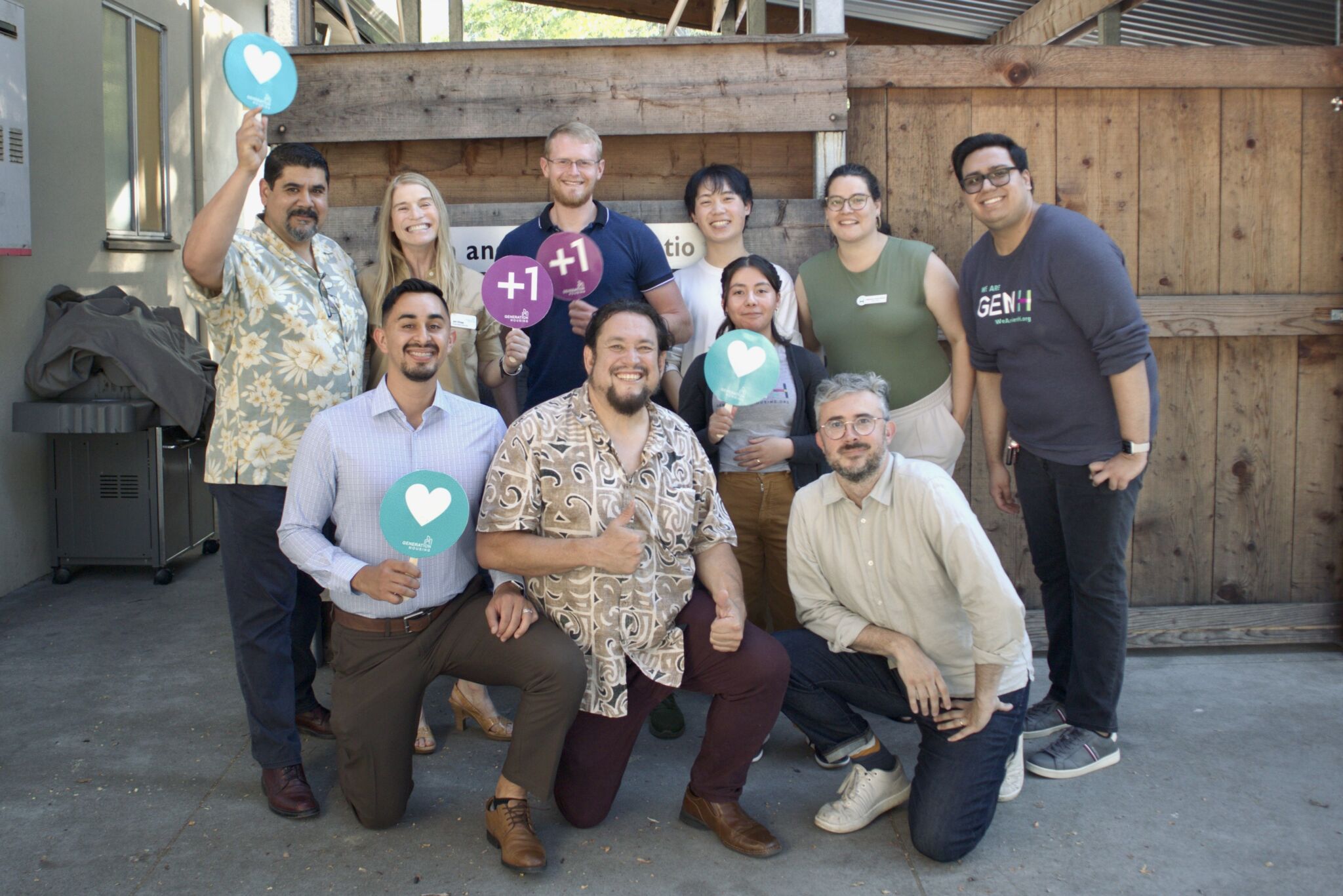
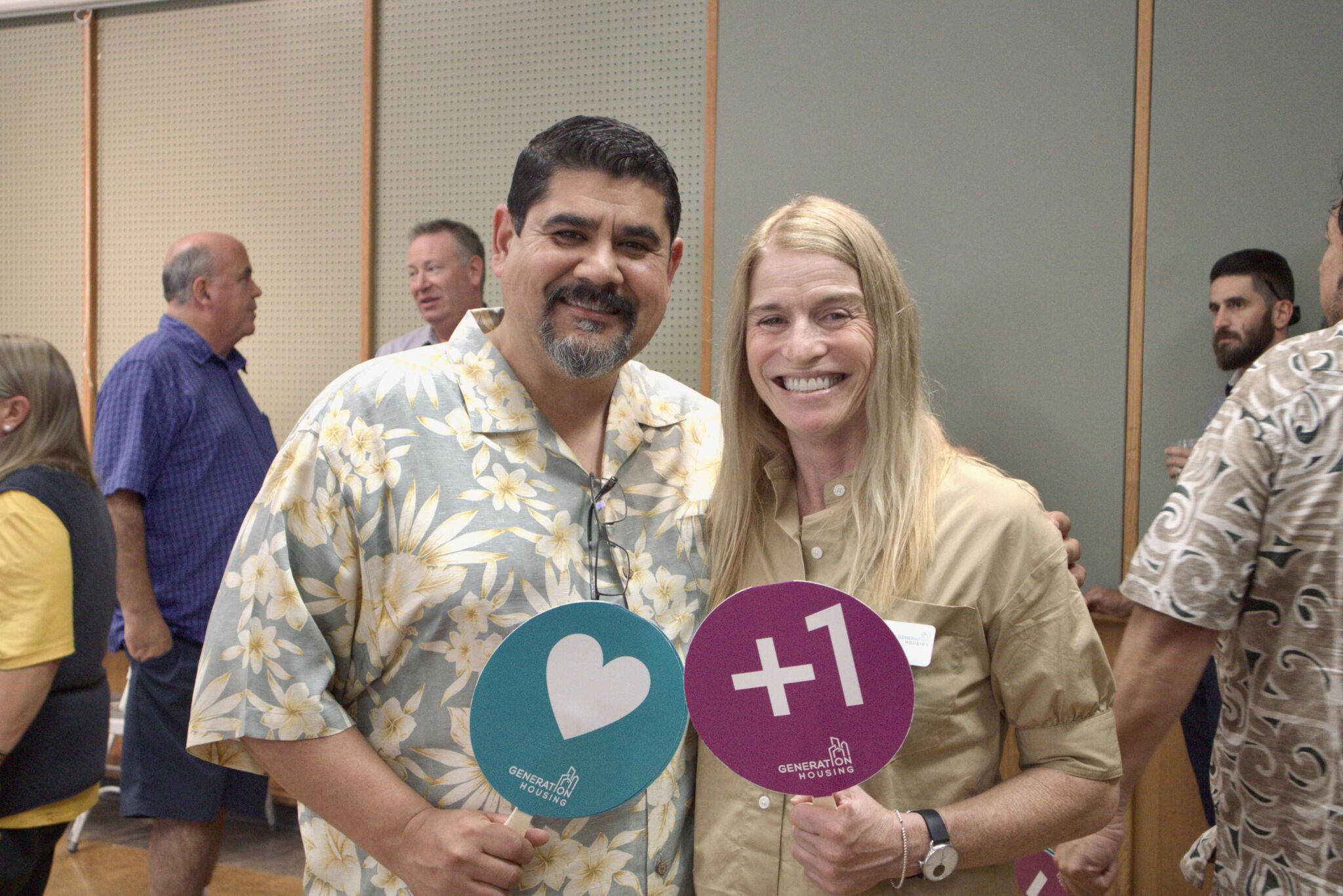
California’s housing crisis is nothing new, and the 2017 fires in Sonoma County only exacerbated the ongoing issue. Jen Klose, founder and Executive Director of Generation Housing has been working on finding solutions to the many barriers to local housing.
After the fires, research determined that the lack of public and political will was the primary barrier to creating affordable housing in Sonoma County and an incubation committee was formed to discuss the issues, funded by grant money from the CFSC Resilience Fund. At the time, Klose was the president of the school board in Santa Rosa City Schools, which was the most impacted school district, and she served on the committee for a year. The process brought the realization that a formal advocacy group was needed to address the varied and complex issues surrounding housing in Sonoma County. Generation Housing was launched in early 2020.
As they gear up for next year’s campaigns, Klose says the work wouldn’t be possible without financial support through grants like those from Community Foundation Sonoma County’s Resilience Fund.
“They’ve given us general operating support and that’s the most helpful kind of money. It’s what really helps us move forward because we don’t make anything and we don’t provide direct services,” says Klose. “We provide our time and brain power and products that are more intellectual in nature and organizing time. So that kind of grant making is invaluable.”
“We do [advocacy] with an equity lens and a sustainability lens so that we make sure that our bandwidth is spent where it is most needed. And where we can be most impactful,” says Klose.
Generation Housing focuses on five primary buckets of advocacy work. The first consists of project advocacy, which helps push promising housing development projects across the finish line by garnering public and political support.
This area of their work has ensured that at least two affordable housing projects with fierce opposition were saved. One was an affordable housing project with 50 units in Santa Rosa, and the other was a 75-unit project for farmworkers in Cloverdale.

Sonoma County Resilience Fund



Food For All:
Nurturing Families and Leadership in Sonoma Valley
While serving as an elementary school principal in Sonoma Valley, Maite Iturri made it a priority to work on developing parent leadership. The parents taught classes in the evening, organized support networks during the 2017 fires and according to Iturri, everyone knew who to turn to when they needed community support.
“Parents were feeling they were visible. They were leaders in the school. It was beautiful,” says Iturri.
Then the pandemic hit in March 2020, and as shelter in place began, parents tried accessing food from food distribution sites. Yet most food programs in the region operated as drive-through only, a barrier to many; Iturri says that many of the Latinx families in Sonoma Valley don’t necessarily drive, and many share one vehicle between multiple families. Driving to the distribution sites was not an option.
“So, the moms—who were these leaders—put themselves on the line to volunteer in these food lines to make sure people were getting fed, because that’s what they know how to do,” says Iturri. “They know how to be leaders, and they saw a problem they knew they could solve.”
The volunteers decided to work with Redwood Empire Food Bank, so they could deliver food boxes to those who weren’t able to drive to pick-up sites. Iturri says they soon realized that not everyone was utilizing the service and decided to begin their own food distribution program.
“And there you go. That’s how Food For All happened, because we were like, “People need diapers. Our essential workers, they were not getting PPE.” Masks weren’t easily available,” says Iturri. “There was a lot of misinformation about the illness. So we started, in addition to providing food and delivering it, providing essential things like pet food, diapers, menstrual kits in addition to culturally relevant food.”
Food For All/Comida Para Todos started by collecting donations to provide boxes to families and individuals from Glen Ellen all the way east to Skaggs Island. The project is run completely by volunteers, with fiscal sponsorship provided by North Bay Organizing Project.
Aside from donated diapers and pet food, and organic vegetable boxes donated by Farm to Pantry, the group purchases all of their food. Some of the funding used to purchase food has come from grants from Community Foundation Sonoma County’s Resilience Fund. The Sonoma Valley Catalyst Fund—a fund of Community Foundation Sonoma County—has also provided significant funding since the COVID-19 pandemic began.
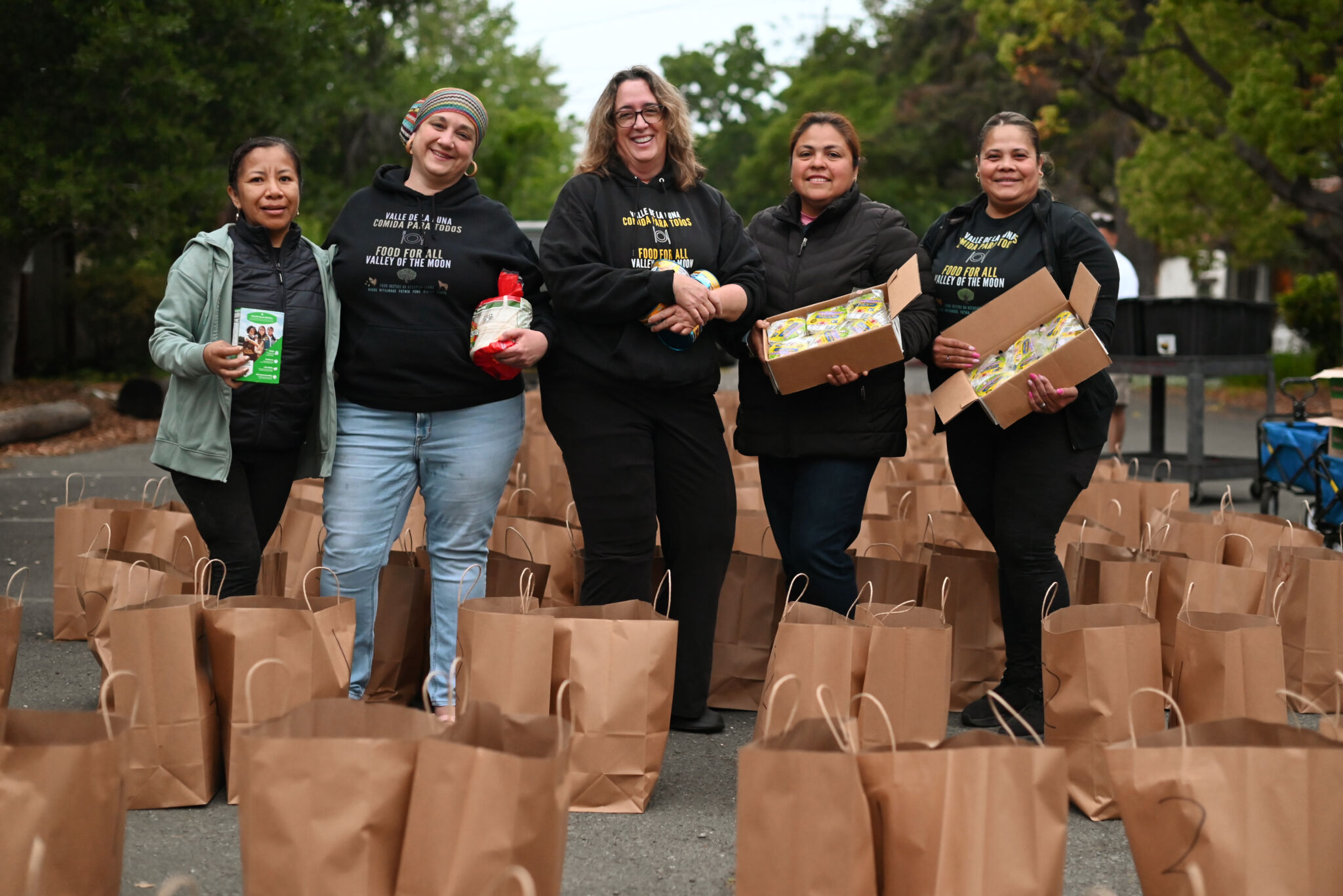
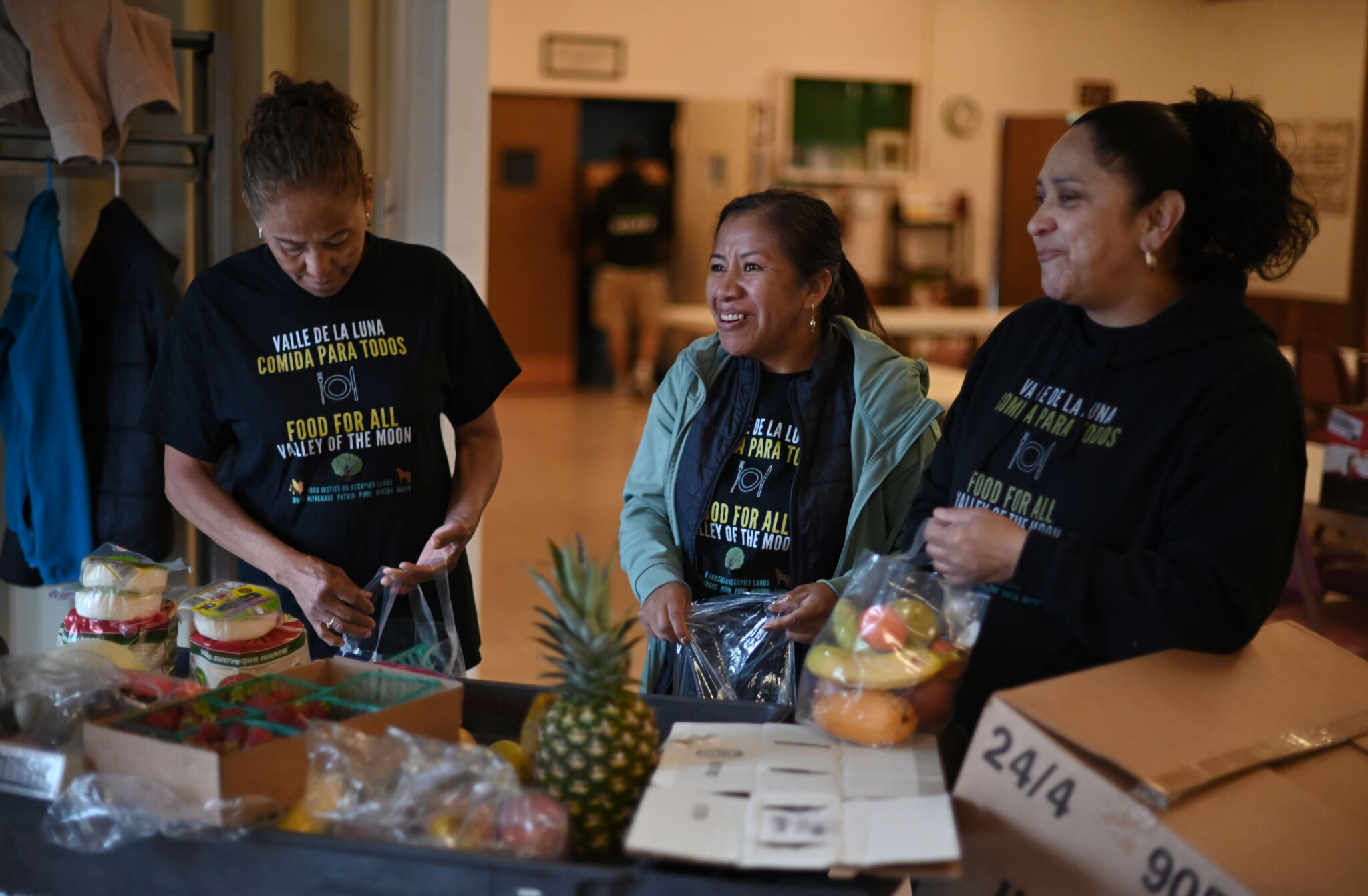
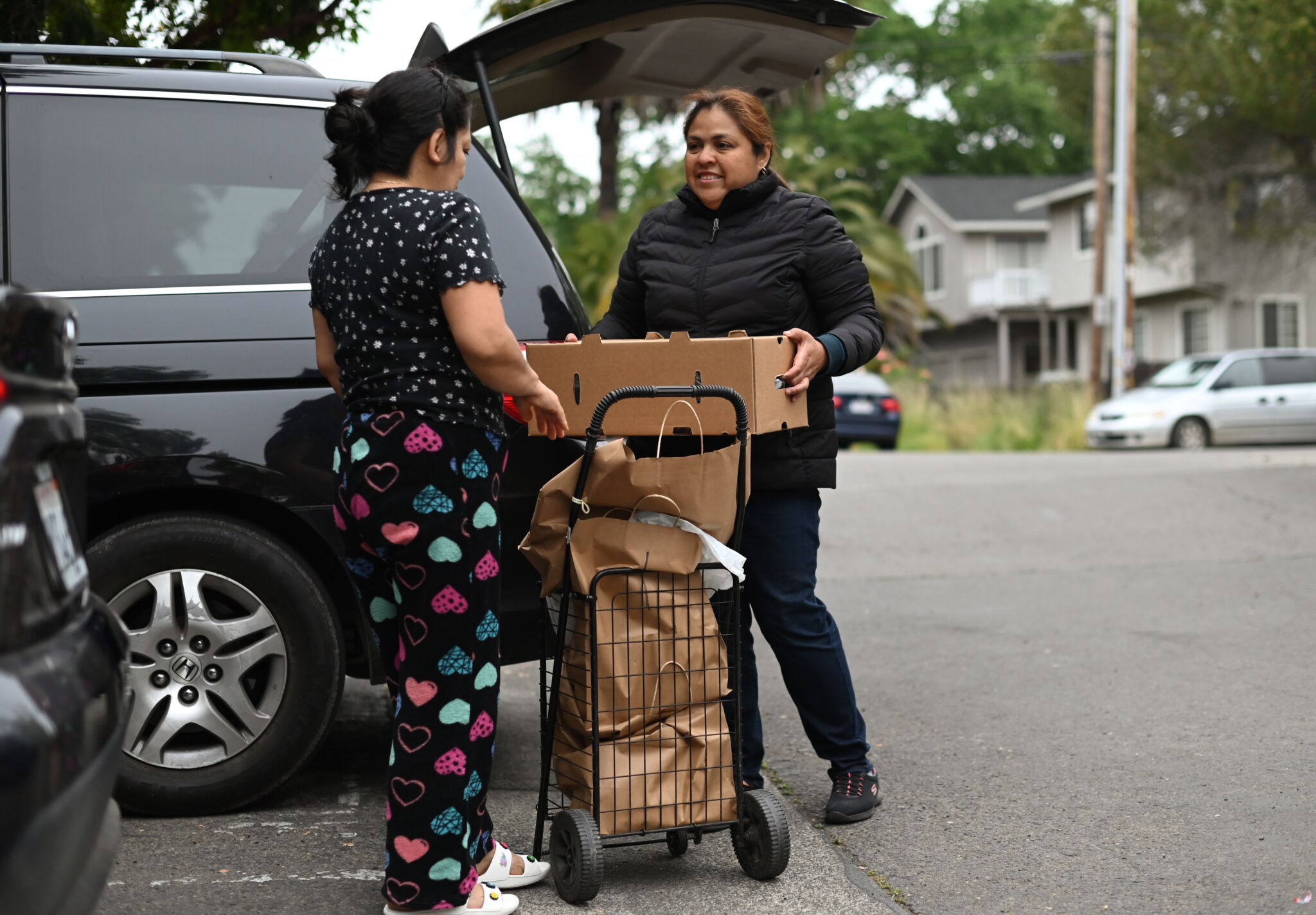

2022 Financial Summary
Total Assets
Total Contributions
Total Grants

Individual Non-Profits Granted To In 2022

1983
Total Grants Awarded Since 1983
$292,525,330
2022
Community Impact Grants
191 grants total
$6,419,075.00
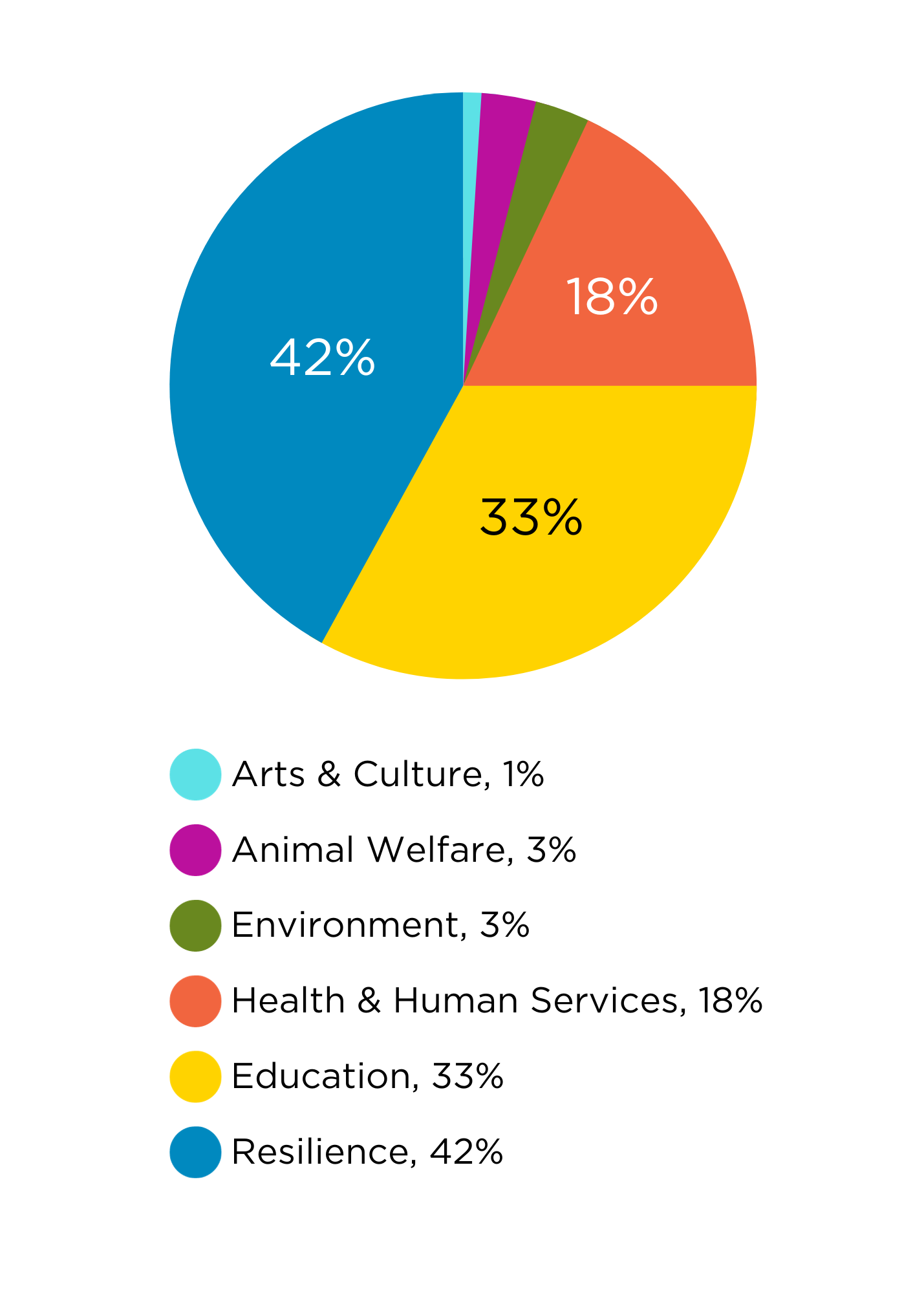
Donor Advised & Other Grants
1100 Grants
$10,763,755
CFSC awarded $10,763,755 in grants in 2022 on behalf of our passionate and generous donors. Our donor advised fund payout rate for 2022 was 14.4%. Payout rates comprise the amount distributed across all donor advised funds collectively.
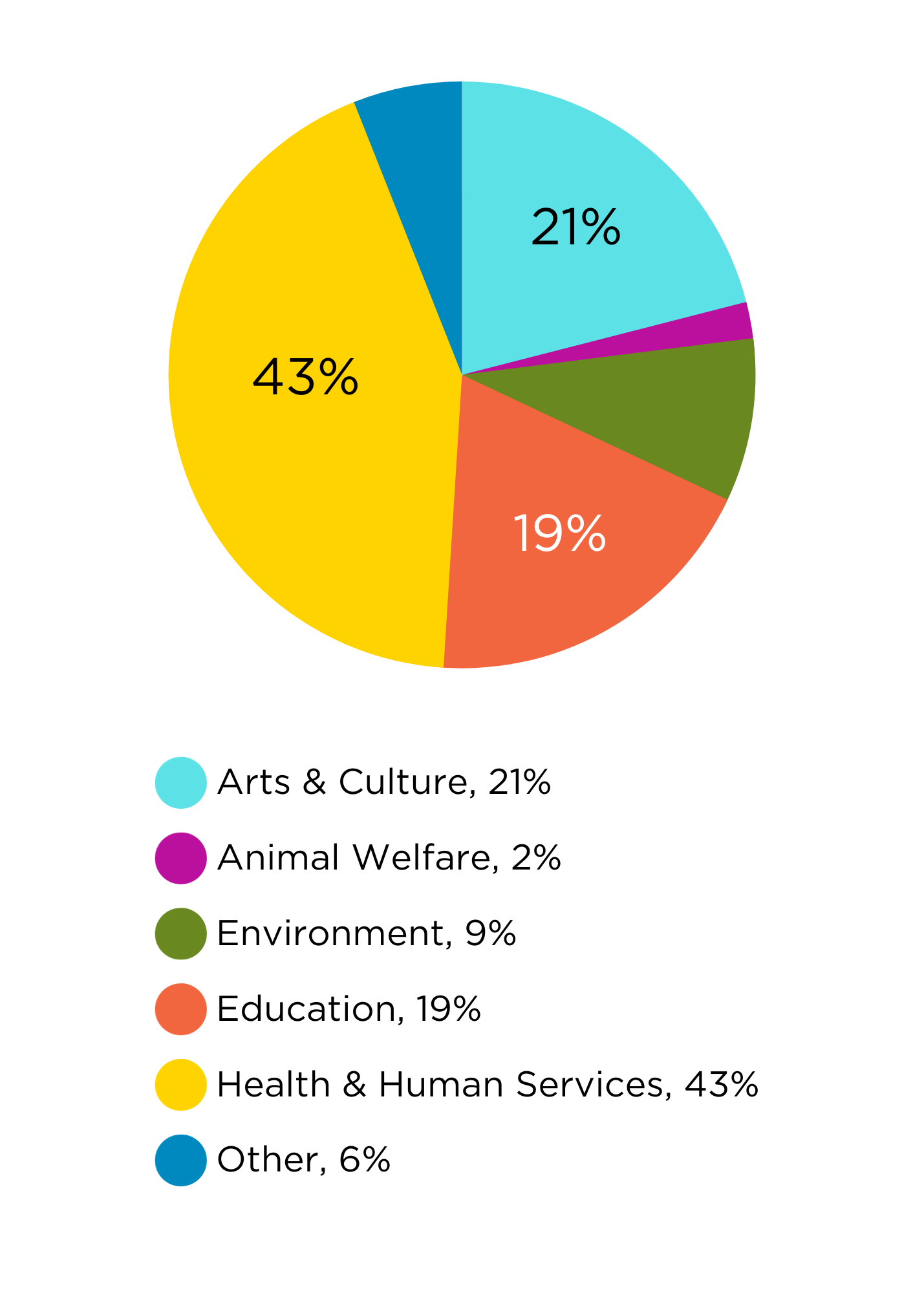
Grants by Location
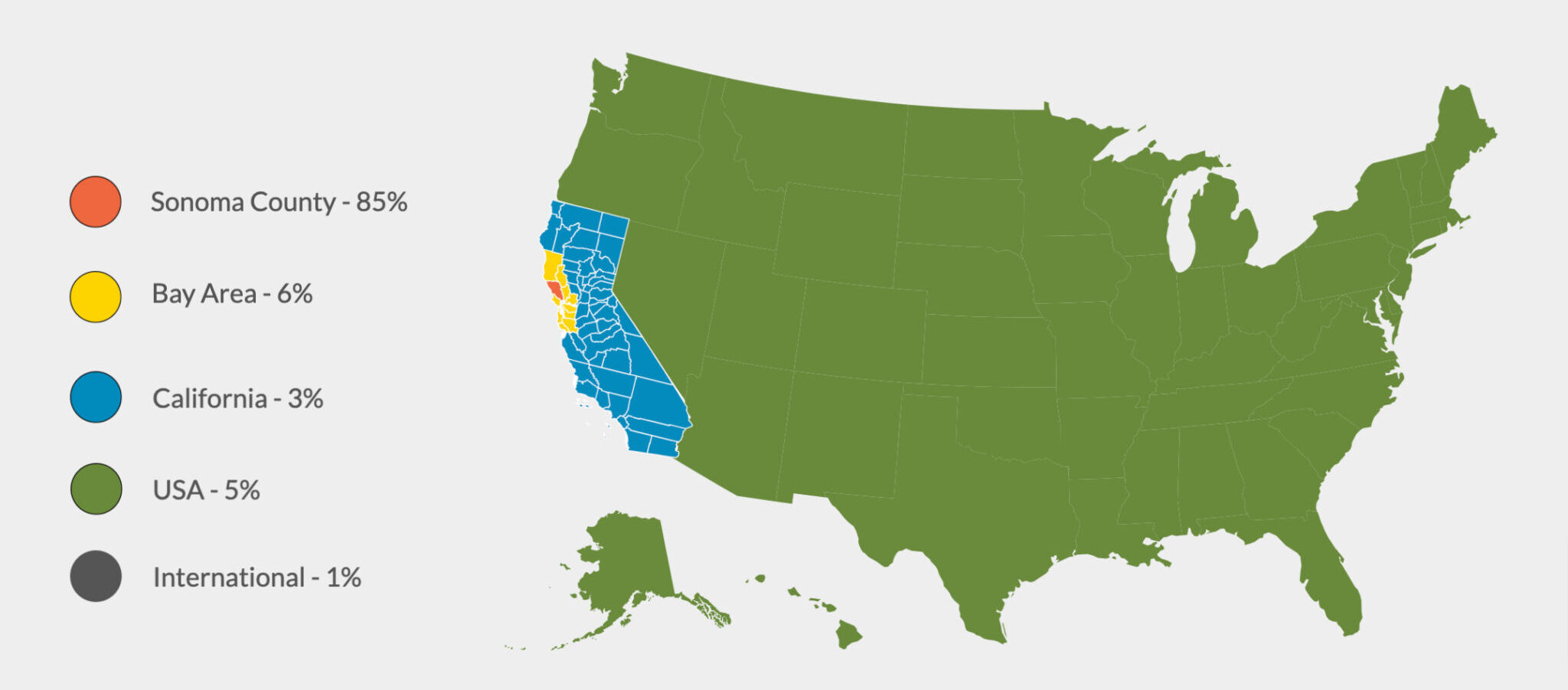
2022 Investment Performance
The assets entrusted to us are invested with a goal of offering donors a range of pool options, all of which return strong performance, ensuring donors are able to grow their investments and grants. This table illustrates pool performance, net of fees, as of December 31, 2022. Performance Results are annualized for time periods greater than one year.
| Pool Assets at 12/31/2022 | YTD | 1 Year | 3 Years* | 5 Years* | Since Inception* | Date of Inception | |
|---|---|---|---|---|---|---|---|
| Long-Term Pool | $116,015,645 | -15.42% | -15.42% | 3.75% | 4.82% | 6.18% | 02/01/1997 |
| Composite Benchmark | -15.00% | -15.00% | 2.48% | 4.35% | 5.78% | ||
| ESG Pool | $ 29,562,473 | -14.22% | -14.22% | 2.96% | 4.53% | 4.97% | 06/01/2001 |
| Composite Benchmark | -15.04% | -15.04% | 2.59% | 4.23% | 5.65% | ||
| Intermediate-Term Pool | $20,676,032 | -10.81% | -10.81% | 1.02% | 2.57% | 3.30% | 08/01/2003 |
| Composite Benchmark | -11.77% | -11.77% | -0.23% | 1.95% | 3.96% | ||
| Short Term Pool | $16,572,337 | 0.38% | 0.38% | N/A | N/A | 0.24% | 09/01/2021 |
| 90 Day T-Bills | 1.50% | 1.50% | N/A | N/A | 1.14% |
Resilience Fund
Total Grants $17,239,146.41
Through the Resilience Fund, we are helping people affected by local disasters through grants that support nonprofits offering economic assistance, trauma and healing programs, housing solutions, and disaster preparedness efforts.
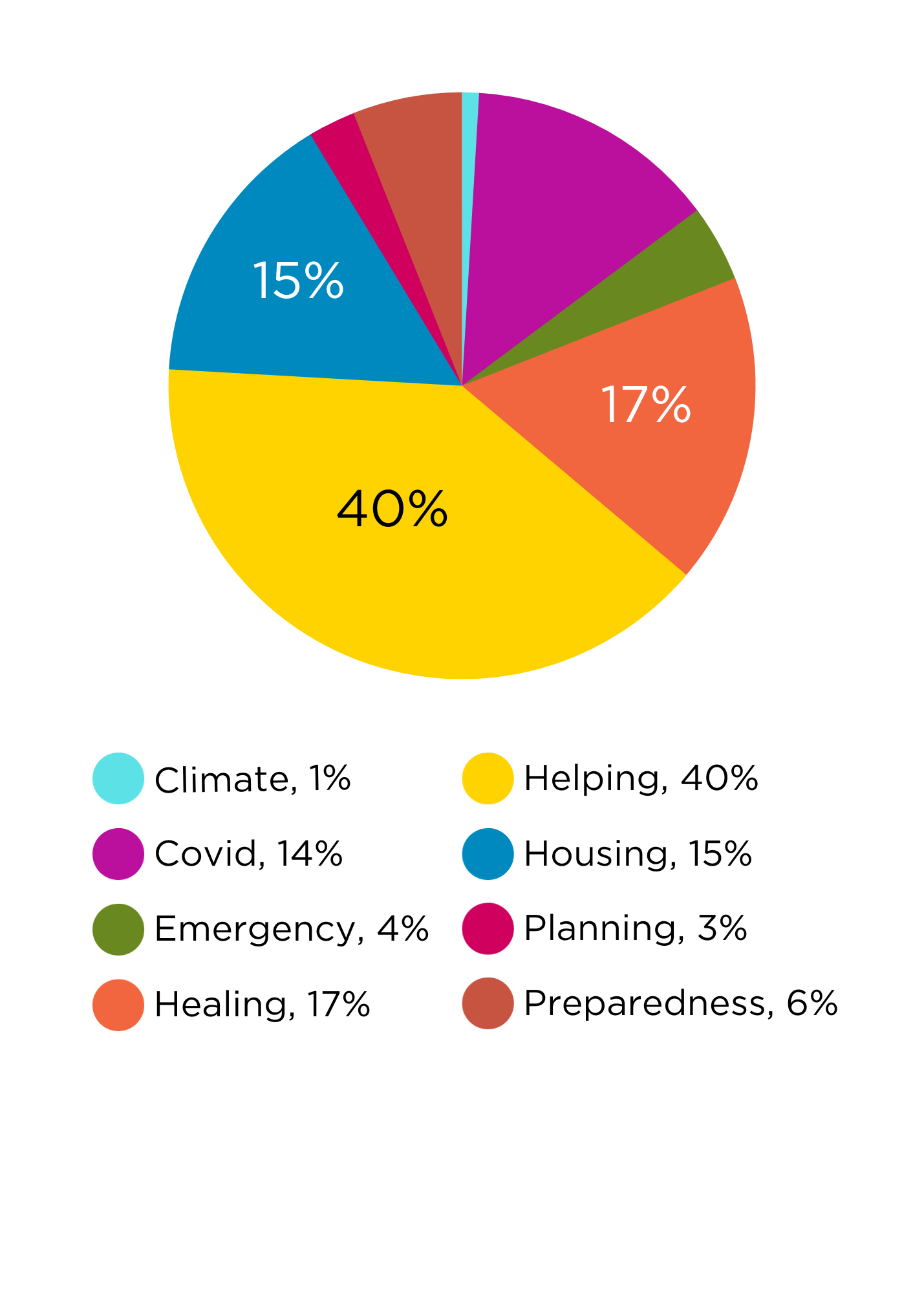
Meet our Team!


